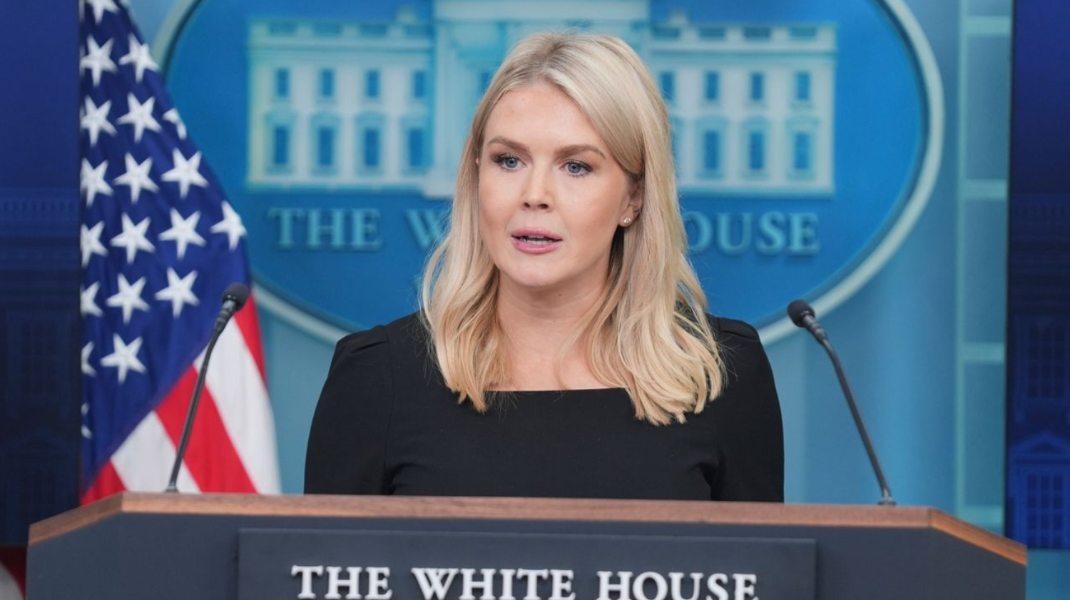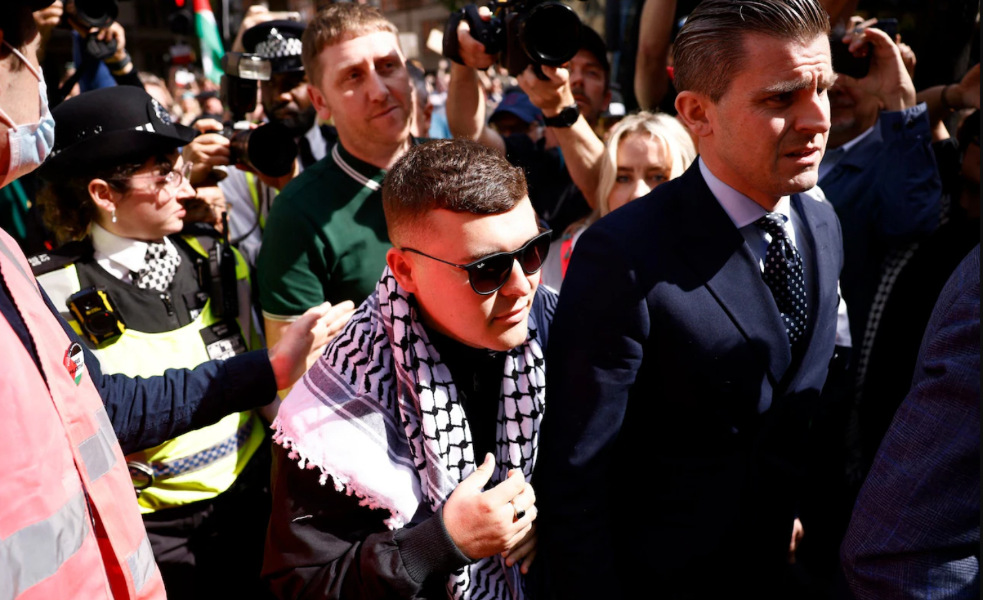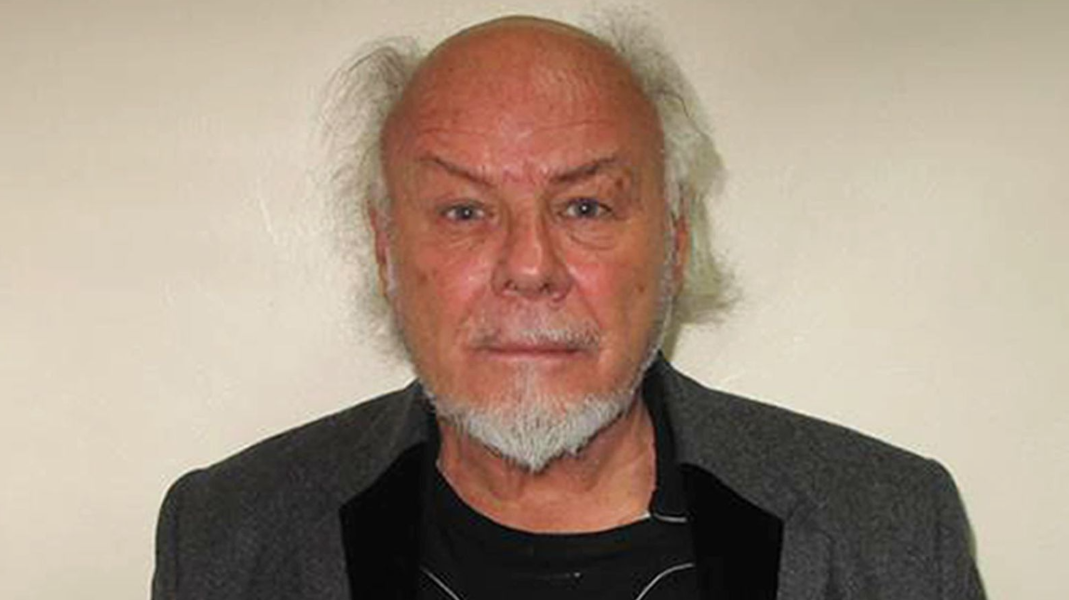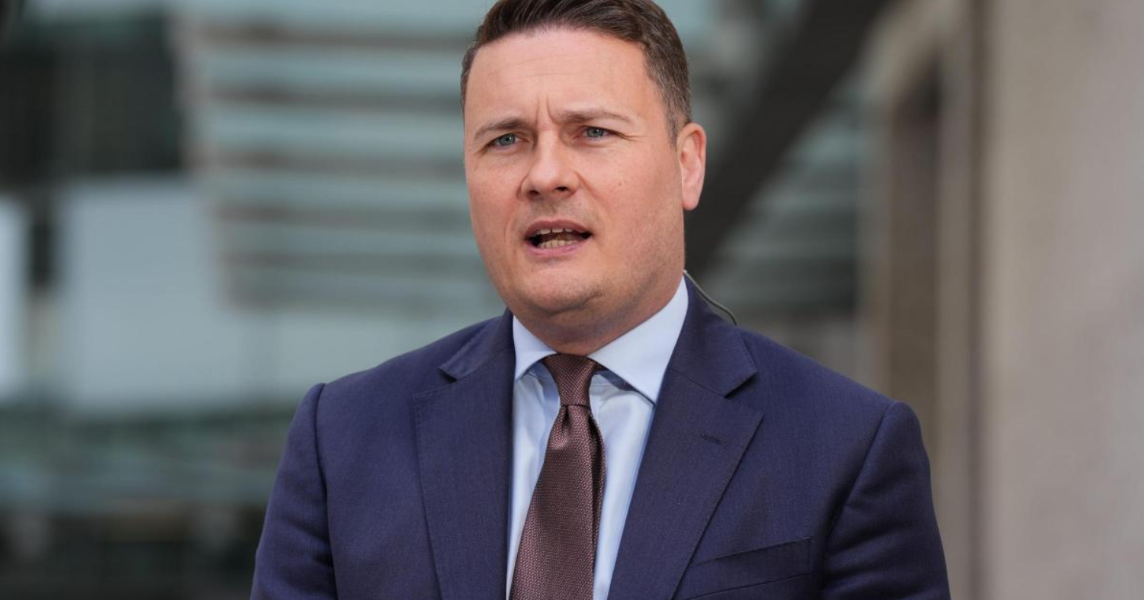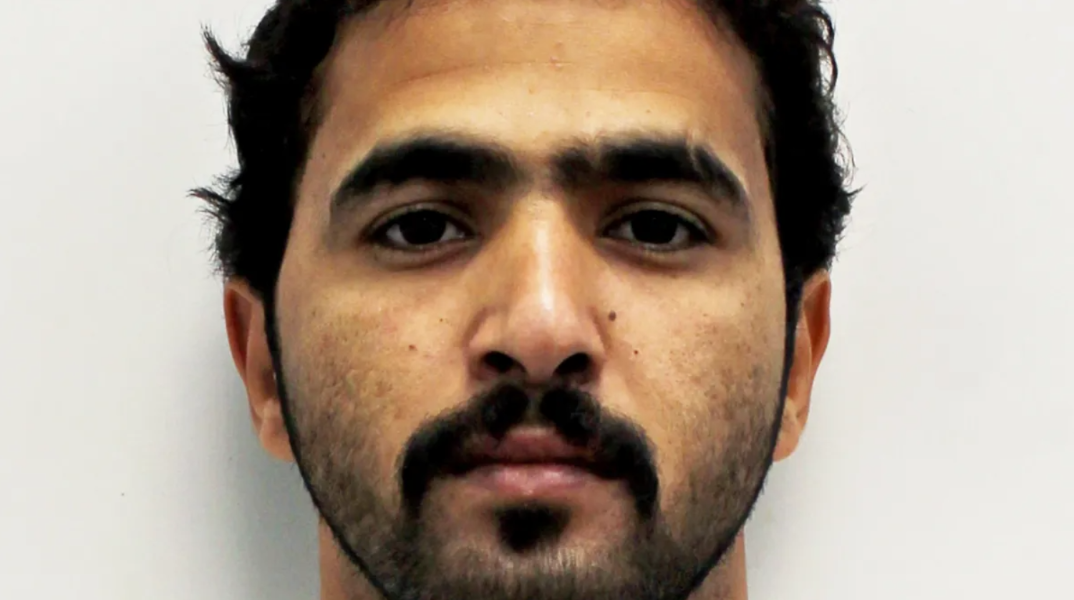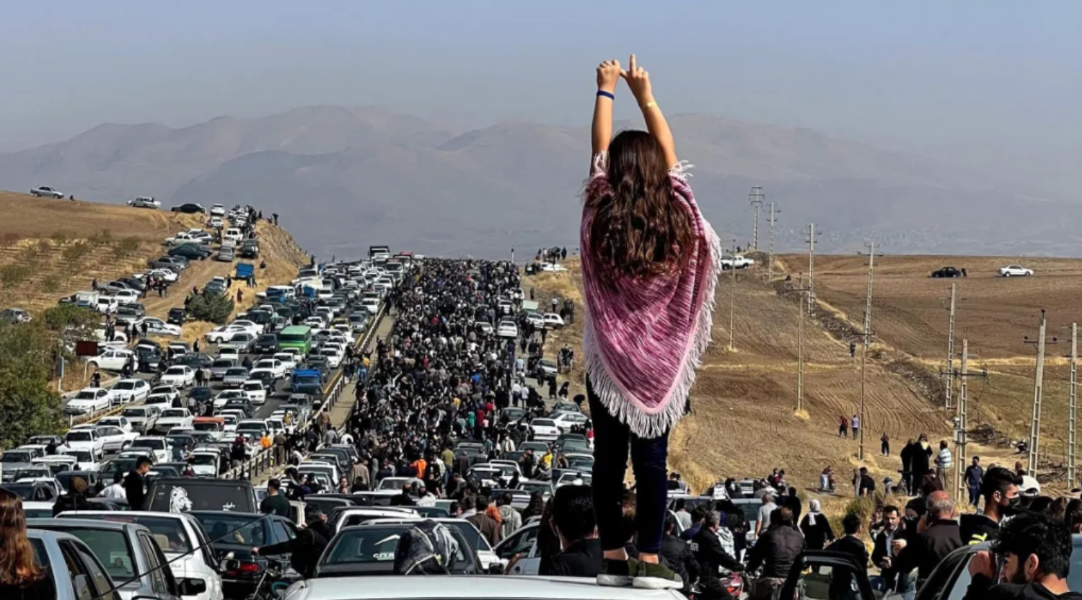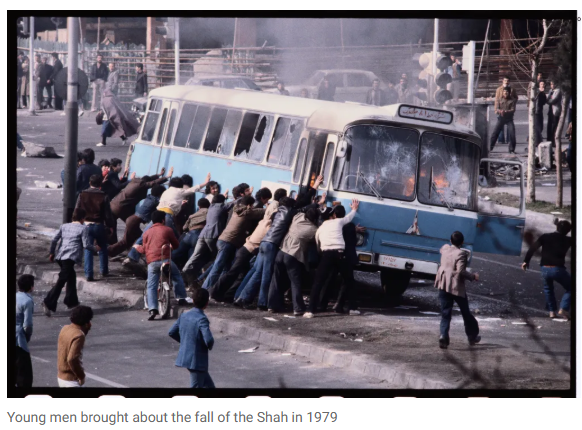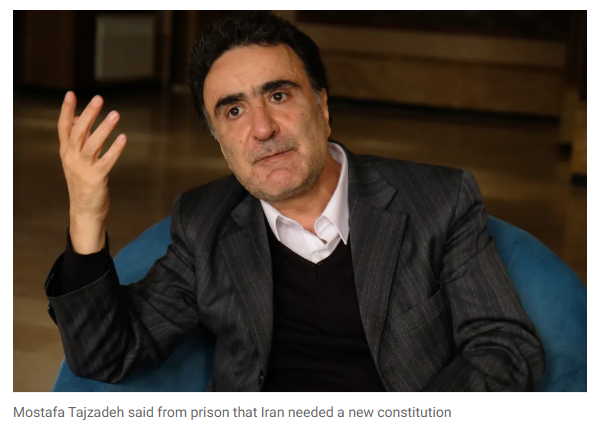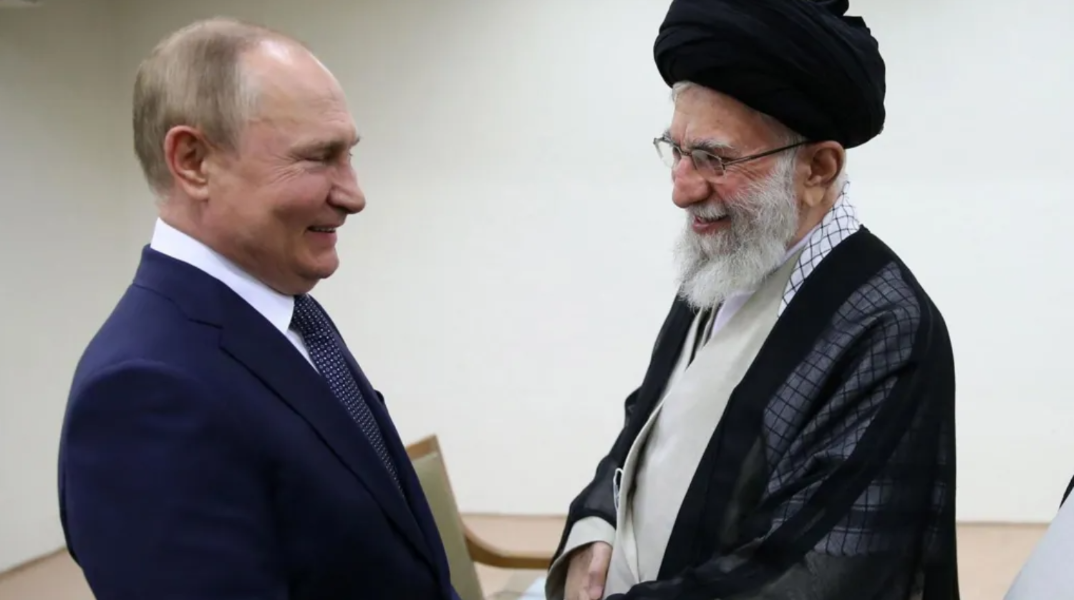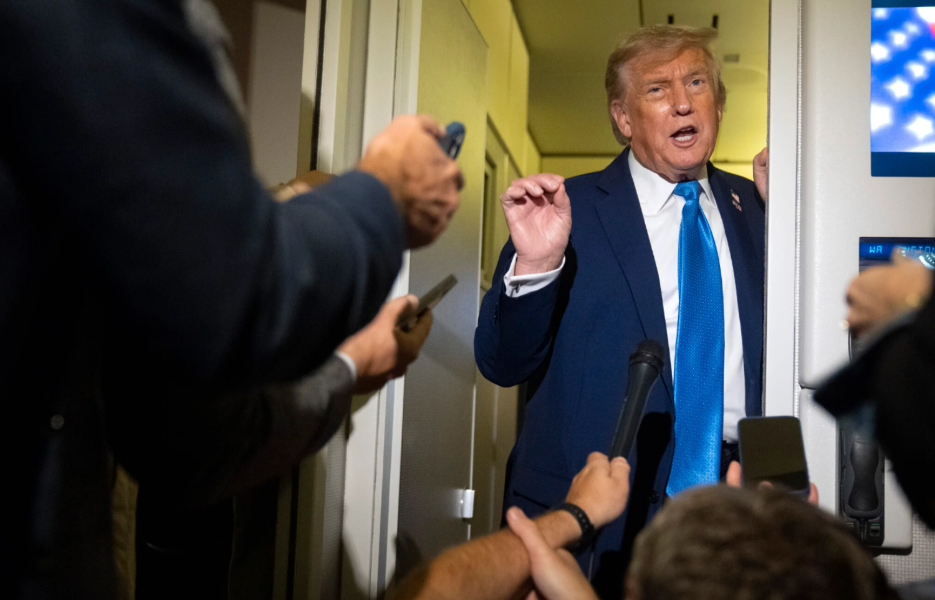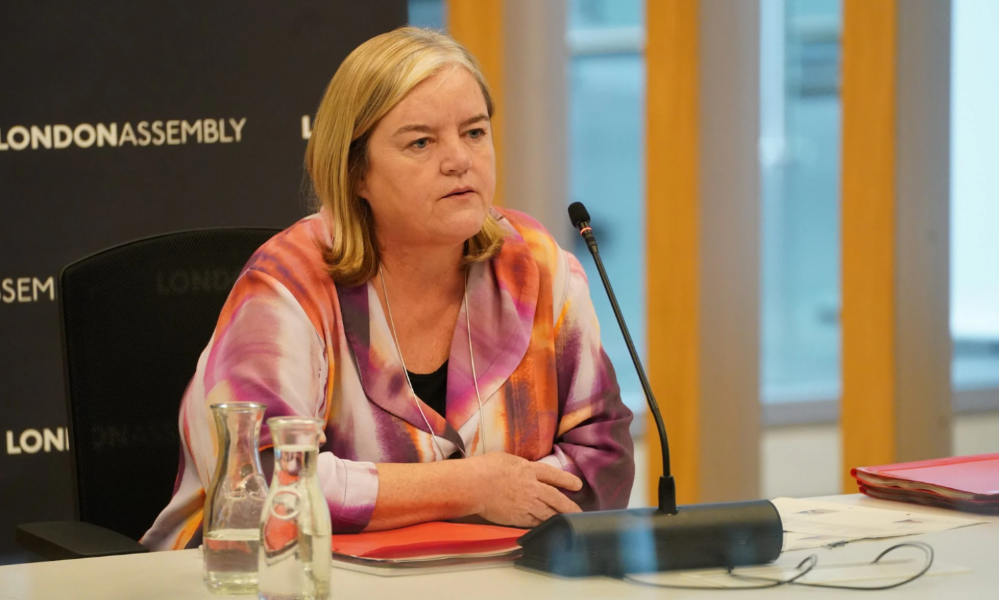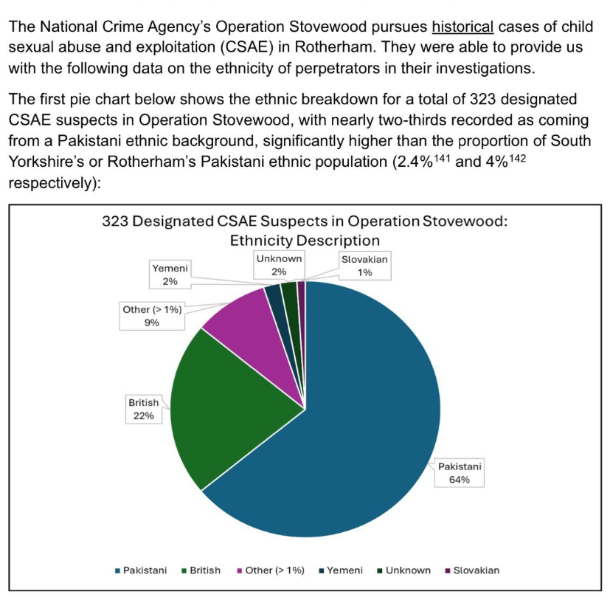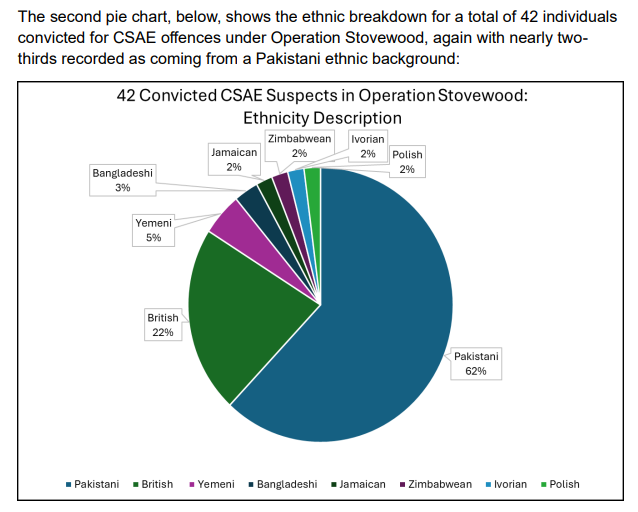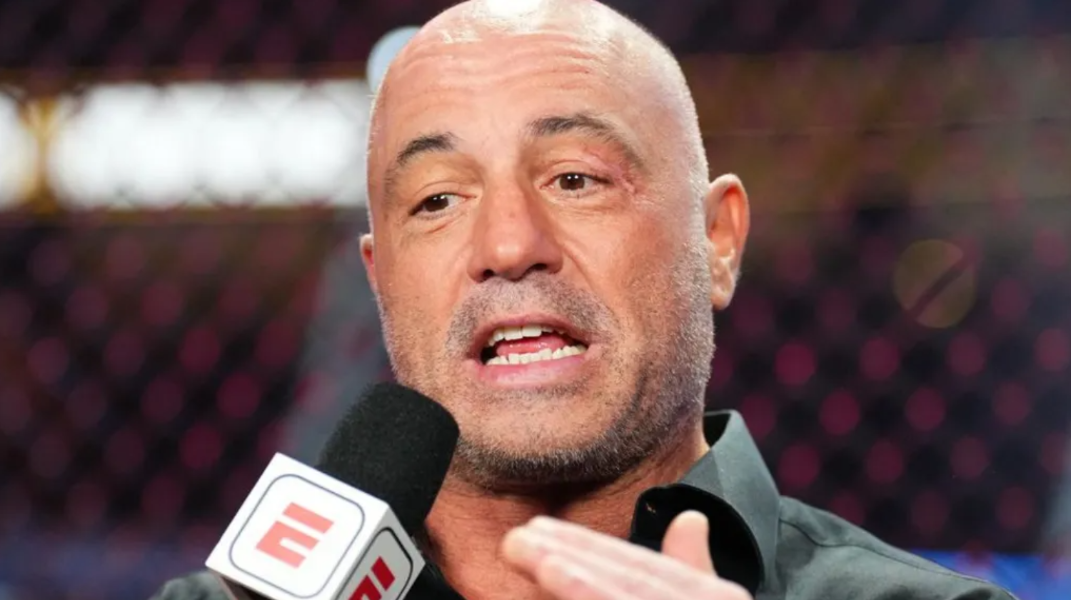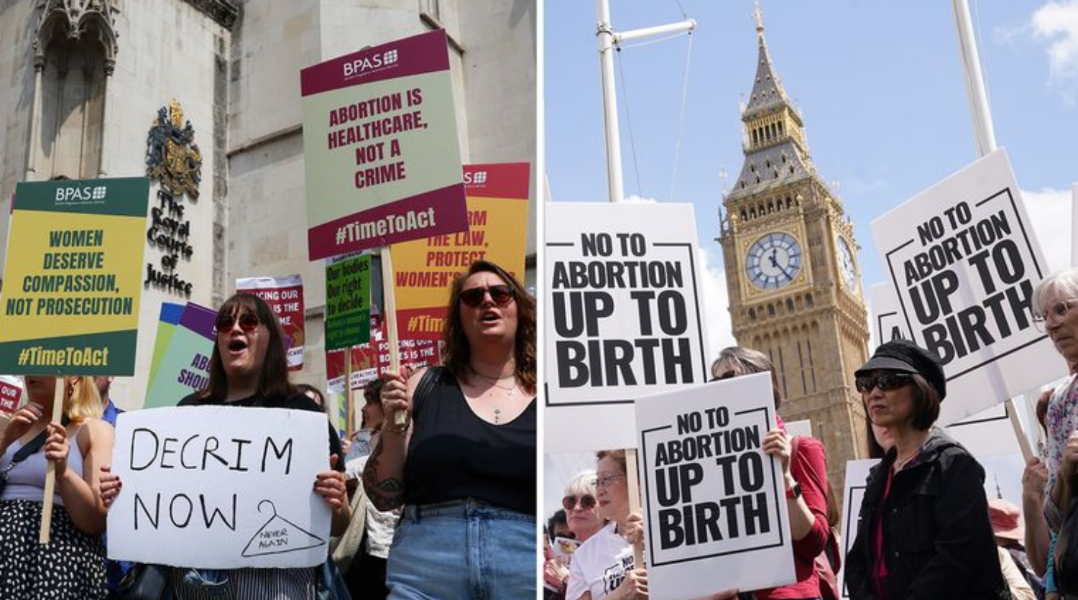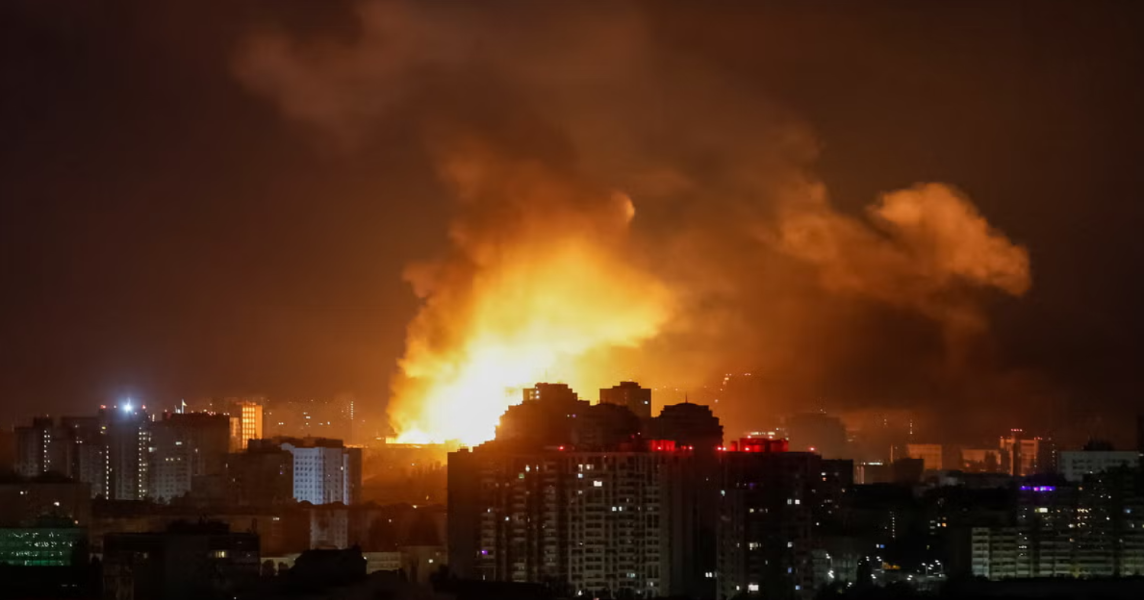-
Posts
10,807 -
Joined
-
Last visited
Content Type
Events
Forums
Downloads
Quizzes
Gallery
Blogs
Everything posted by Social Media
-

USA Trump to make decision on US involvement 'within two weeks'
Social Media posted a topic in World News
In a closely watched White House press briefing, Press Secretary Karoline Leavitt conveyed a direct message from President Donald Trump regarding America’s potential involvement in the escalating conflict between Israel and Iran. Addressing growing speculation over the U.S. military’s role in the region, Leavitt confirmed that the president has not yet made a final decision. “Based on the fact that there's a substantial chance of negotiations that may or may not take place with Iran in the near future, I will make my decision whether or not to go within the next two weeks,” Trump said in the statement delivered by Leavitt. The president’s remarks come amid heightened tensions in the Middle East and increasing pressure at home and abroad to clarify the United States’ position. While details of the possible negotiations with Tehran remain undisclosed, Trump’s statement suggests that the administration sees diplomatic engagement as a potential avenue to defuse the crisis—at least for now. His comments leave open the possibility of direct American involvement but tie any such action to the likelihood and progress of talks with Iranian officials. This conditional approach signals that Trump is attempting to strike a balance between projecting strength and allowing space for diplomacy, as regional violence threatens to spiral further out of control. With speculation intensifying in Washington and allied capitals, the two-week timeline now sets a ticking clock on a decision that could reshape the geopolitical landscape of the region. Adapted by ASEAN Now from BBC 2025-06-20 -
@PatThaiM Trolling topic closed, this is the third post/topic you have posted on the same subject. //closed//
-
White House Blasts Jim Acosta Over Joke About Trump’s Late Ex-Wife Former CNN correspondent Jim Acosta is facing intense backlash after making controversial remarks about President Donald Trump’s late ex-wife, Ivana Trump, during a podcast appearance. In a recent episode of “The Contrarian” podcast hosted by Jennifer Rubin, Acosta made light of Ivana’s burial site and accused Trump of hypocrisy on immigration, drawing swift condemnation from the White House. Acosta criticized Trump’s record on immigration enforcement, especially his past support for U.S. Immigration and Customs Enforcement (ICE) raids. He questioned why ICE has not targeted Trump’s properties, suggesting undocumented immigrants could be employed there. “Where are the ICE raids at the Trump properties? Could somebody call ICE on the Trump golf course in Virginia? You’re telling me there’s nobody in there that is undocumented or has some kind of squirreliness going on with their paperwork?” Acosta asked during the show. He went further, referencing Trump’s relationships with immigrant women, including Ivana, who died in 2022. “How many immigrants has he married? He’s got one buried at his golf course in New Jersey! Isn’t she buried by the first hole or the second tee or something like that?” he quipped, prompting laughter from Rubin and fellow guest April Ryan. Ivana Trump, mother to Donald Jr., Ivanka, and Eric Trump, is buried at Trump National Golf Club in Bedminster, New Jersey. The White House responded strongly. Press secretary Karoline Leavitt told Fox News Digital, “Jim Acosta is a disgraceful human being.” Acosta, known for his contentious relationship with the Trump administration while at CNN, left the network in January. Throughout Trump’s first term, Acosta became one of his most outspoken critics, often blending editorial commentary with news reporting. Since going independent, his tone has remained combative, particularly on issues like immigration and civil rights. His latest remarks come as immigration enforcement efforts have ignited political turmoil in Los Angeles. ICE raids across the sanctuary city have sparked widespread protests, leading to hundreds of arrests. The Los Angeles Police Department reports 575 individuals have been arrested since the first weekend of demonstrations. Violent clashes between protesters and law enforcement have resulted in significant property damage, including vehicles set ablaze and fireworks launched at police. As of Monday, ten law enforcement officers have sustained injuries, according to the LAPD. In such a charged atmosphere, Acosta’s comments have added fuel to the fire. While supporters argue he is using satire to expose double standards, critics see his remarks as deeply disrespectful, especially toward Ivana Trump, who passed away less than three years ago. As the political climate remains volatile and immigration continues to dominate headlines, the fallout from Acosta’s remarks underscores the deeply personal and partisan nature of the current national debate. Adapted by ASEAN Now from NYP 2025-06-15
- 35 replies
-
- 10
-

-

-
Kneecap Band Member Faces Terror Charge Over Flag Display as Supporters Rally Outside Court A member of the Belfast-based rap group Kneecap appeared in court on Wednesday to face a terror-related charge stemming from an incident during one of the band’s concerts in November 2024. Liam O’Hanna, who performs under the name Mo Chara, is accused of displaying a Hezbollah flag at the O2 Forum in Kentish Town, north London, in a manner that allegedly indicated support for the proscribed organisation. As O’Hanna, 27, arrived at Westminster Magistrates’ Court, a group of supporters gathered outside, many wearing balaclavas and waving a combination of Palestinian and Kneecap flags. The scene grew tense when a pro-Israel protester approached the group draped in an Israeli flag, leading to a chorus of boos, angry shouts of “free Palestine,” and swearing from the crowd. Police quickly intervened to remove the counter-protester. The charge against O’Hanna specifically alleges that he displayed the Hezbollah flag in a public setting “in such a way or in such circumstances as to arouse reasonable suspicion that he is a supporter of a proscribed organisation,” which in this case refers to Hezbollah, banned in its entirety in the United Kingdom. The group has denounced the prosecution, calling it politically motivated and a form of harassment. In a statement posted Tuesday night on X, formerly Twitter, Kneecap referred to the case as a “witch hunt.” The post featured a video of a London billboard with the message: “more blacks, more dogs, more Irish, Mo Chara,” appearing to draw parallels between historic discrimination and their current legal troubles. According to the Metropolitan Police, O’Hanna was charged following an investigation that began after a video from the concert surfaced online. The footage reportedly showed the controversial moment when the flag was allegedly displayed. Prior to this, the police had already confirmed that Kneecap was under investigation after clips from the same performance circulated online appearing to show members of the band shouting “up Hamas, up Hezbollah” and calling for the deaths of Members of Parliament. In response to the allegations, Kneecap has stated unequivocally that they “never supported” Hamas or Hezbollah. Both groups are designated as terrorist organisations by the UK government, and public expressions of support for them can be prosecuted under counter-terrorism laws. The case has sparked debate around artistic expression, political dissent, and the limits of free speech in the UK. While supporters of the band view the charges as an overreach and a form of political suppression, authorities maintain that the investigation was initiated in accordance with the law after concerns were raised over potentially inflammatory and illegal conduct during a public event. O’Hanna has not yet entered a plea, and the case is expected to return to court in the coming weeks. Adapted by ASEAN Now from The Telegraph 2025-06-19
-

UK Gary Glitter Denied Parole Again, Will Remain Behind Bars
Social Media posted a topic in World News
Gary Glitter Denied Parole Again, Will Remain Behind Bars Disgraced former pop star Gary Glitter, whose real name is Paul Gadd, has been denied release from prison after the Parole Board rejected his latest bid for freedom. Now 81, Glitter remains incarcerated for a string of historic child sex offences, with the board citing continued concerns about the risk he poses to the public. Glitter was originally sentenced to 16 years in 2015 for sexually assaulting three schoolgirls between 1975 and 1980. He was automatically released halfway through his sentence in February 2023, as per the terms of his determinate sentence. However, less than six weeks later, he was recalled to prison for breaching his licence conditions after allegedly attempting to view child abuse material online. According to reports, this included efforts to access the dark web and download images of children. A spokesperson for the Parole Board confirmed that the most recent review of Glitter’s case, conducted via a “paper review” rather than a hearing, concluded that he should not be released. “Parole Board decisions are solely focused on what risk a prisoner could represent to the public if released and whether that risk is manageable in the community,” the statement said. “A panel will carefully examine a huge range of evidence, including details of the original crime, and any evidence of behaviour change, as well as explore the harm done and impact the crime has had on the victims. Parole reviews are undertaken thoroughly and with extreme care. Protecting the public is our number one priority.” The singer’s full sentence is due to expire in February 2031, but he will remain eligible for periodic parole reviews, with the next date to be determined by the Ministry of Justice. Earlier this year, Glitter was also declared bankrupt after failing to pay over £500,000 in damages to a woman who successfully sued him for abusing her when she was just 12 years old. She is one of many survivors of his long and disturbing history of abuse, which spans multiple countries and decades. Richard Scorer, the lawyer who represented the woman in that civil case and who heads the abuse law and public inquiries department at Slater and Gordon, welcomed the Parole Board’s latest decision. “The Parole Board has made the right decision,” he told Sky News. “My client is relieved at this ruling but apprehensive about having to go through the merry-go-round of Gadd coming up for parole again, and the fear of him being let out on licence. This is unfair on victims and it would be better if they were assured that he would serve the rest of his sentence.” Glitter’s criminal record extends beyond the UK. In 1999, he was jailed for four months after pleading guilty to possession of approximately 4,000 indecent images of children. He was deported from Cambodia in 2002 and later convicted in Vietnam in 2006 for sexually abusing two girls aged 10 and 11, serving two and a half years in prison. Though no longer a figure in the public eye, Glitter’s continued imprisonment remains a matter of deep public interest due to the nature of his crimes and repeated attempts to reoffend. The Parole Board’s refusal to release him reaffirms its stance that public safety remains paramount. Adapted by ASEAN Now from Sky News 2025-06-19 -
Streeting Slams NHS 'Culture of Cover-Up' and Vows Transparency in Health Reform The NHS has been gripped by a damaging “culture of cover-up” that must end, according to Health Secretary Wes Streeting, who has pledged to make patient safety a central focus in the government’s upcoming 10-year health plan. Acknowledging persistent failures in the system, Streeting promised there would be “no more turning a blind eye to failure.” Streeting’s admission came during a Commons exchange in which Labour MP Perran Moon highlighted the harrowing experience of one of his constituents. “A couple of weeks ago at my constituency surgery, through the tears, my constituent Amy explained how, following a hip operation in 2008, she suffered progressive nerve damage due to repeated failures in diagnosis, referral and treatment,” Moon told MPs. Despite raising concerns over many years, Amy’s suffering was dismissed. “She was told her pain was common,” Moon said. It was not until 2015 that a nerve test confirmed lasting damage, and further tests in 2023 revealed a significant deterioration. “After 17 years, she’s only now been offered surgery,” he said. “All Amy wants to know is what steps are being taken to ensure that no other patient is left permanently disabled due to such long and systemic failures.” Streeting responded with an apology and a stark acknowledgment of wider systemic issues: “Can I first of all, on behalf of the NHS, apologise to his constituent. That is a totally intolerable situation, but sadly not rare or exceptional. There’s too much of that happening, and a culture of cover-up and covering reputations rather than being honest with patients about failures.” He stressed that cultural change is a key priority for the government’s health strategy. “We are changing the culture – safety is at the heart of the 10-year plan – and I’d be delighted to talk to him further about his constituent’s case,” Streeting said. The new long-term plan, due to be unveiled within weeks, will outline three major shifts in the way NHS services are delivered: a move from hospitals to community care, from analogue systems to digital infrastructure, and from reactive treatment to preventative care. These changes follow a record £29 billion funding boost for the NHS in the most recent spending review. Streeting has made clear that transparency and accountability will be central to his reforms. He intends to introduce NHS league tables to expose underperformance, stating that patients are entitled to “far more transparency” when it comes to failures in care. His broader ambition is to evolve the NHS into a “neighbourhood health service,” reallocating more resources from hospitals to GP surgeries and community-based care. In a further effort to drive improvements, the government announced last month that it will offer bonuses of up to £30,000 to health leaders who deliver “exceptional results.” This incentive scheme is part of a broader initiative to overhaul NHS performance and ensure patients are no longer left behind by systemic inefficiencies. Streeting’s comments signal a decisive break from past practices of denial and silence around medical failures. With the forthcoming 10-year plan, the government hopes to reset the relationship between the health service and the public, placing honesty, safety, and community care at the forefront. Adapted by ASEAN Now from The Telegraph 2025-06-19
-
Meghan Markle: “I Just Want People to Tell the Truth” Meghan, Duchess of Sussex, has once again offered a candid glimpse into her life after stepping back from royal duties, saying she would rewrite her public narrative by simply asking people to “tell the truth.” In a wide-ranging interview on the Aspire podcast with British fashion entrepreneur Emma Grede, Meghan took what many interpreted as a thinly veiled swipe at the Royal family, insisting that “a lie can’t last forever” and reflecting on the years in which she says she was denied the chance to speak for herself. “If I could rewrite anything,” she said when asked about how she might reshape her image, “yes, I would ask people to tell the truth.” Recalling advice she received from her friend, tennis legend Serena Williams, Meghan added: “My dear friend Serena, she told me years ago: ‘A lie can’t live forever.’ Eight years is a long time, but not forever.” Meghan, now 43, also addressed how she navigated life as a working royal, saying, “I didn’t feel as though I had as much of an opportunity to speak,” and adding that she turned to fashion as a subtle form of communication. “When I didn’t feel as though I had as much of an opportunity to speak, what can you say with what you’re wearing? You can say a lot,” she explained. “In moments where I found I wasn’t as empowered with my voice, I still wanted to be able to be heard in other ways.” Her remarks echo those made during her bombshell 2021 interview with Oprah Winfrey, in which she claimed “the Firm” had played a role in “perpetuating falsehoods” about her and Prince Harry. During that conversation, Meghan also alleged that Catherine, Princess of Wales, had made her cry in the days before her wedding and that it was crucial people “understand the truth.” In the podcast interview, Grede responded emotionally to Meghan’s frustrations. “You’re very measured about it. I would just get so angry if I felt like everyone was lying about me all the time…” Meghan replied, “Peaks and valleys… It’s true, of course, I’ve gone through those chapters and do a lot of work, you do a lot of self-work and go, what’s the why? It’s happening for a reason.” The Duchess also spoke about her current endeavors, particularly her new lifestyle brand, As Ever. Initially launched with jars of jam, Meghan said the brand is “going global” and expanding into hospitality, hostessing, and possibly fashion and beauty in the future. “I’m not saying there aren’t moments when I don’t feel scared, but my faith is greater than my fear. I believe in myself, I believe in my team and the potential for success,” she said. “I don’t see the possibility of failure, not when you can learn from everything you’ve done.” She described her proudest achievement as investing in herself. “It takes courage to bet on yourself,” she said. The Duchess reflected on a joyful moment shortly before the birth of her daughter, Princess Lilibet, when she and Harry were filmed twerking in a hospital delivery suite. She described the video as a reminder of her “authentic, fun life” and expressed gratitude for being able to share such moments “on her own terms.” She also addressed the purpose of her personal Instagram account, which she has used increasingly to share family photos and glimpses of her private life. “For me it was a great way to get my voice back. It’s my space and my channel for joy… that’s the intention of my handle,” she said, distancing the platform from her business ventures. Even when she didn’t have “skin in the game,” Meghan said she tried to support emerging talent, particularly female-founded and local designers during royal tours. “Being able to support female-founded designers, small local brands ... any territories we would go to on certain tours, I always tried to tap into local designers.” Through all the criticism and controversy, Meghan continues to assert one simple wish: for people to tell the truth. Adapted by ASEAN Now from The Telegraph 2025-06-19
-
Qatari Man Convicted of Rape at London Hospital After Claiming No Prior Contact With Women A Qatari national who raped a woman in a London hospital toilet had never interacted with women outside his family, a court has heard. Nasser al-Gherainiq, a 27-year-old camel herder from a conservative tribe in Qatar, was convicted of two counts of rape at Southwark Crown Court. The attack occurred at Royal Brompton Hospital in Chelsea on August 25, 2023, while al-Gherainiq was in the UK to receive treatment for a rare heart condition. Al-Gherainiq, who denied the charges of rape but admitted to sexual assault and causing a person to engage in sexual activity without consent, dragged his victim into a lavatory cubicle and assaulted her. The court heard that he told the woman he needed to use the toilet before forcing her into the stall. The victim, who has remained anonymous, gave a statement that described the psychological toll of the assault. “I was so scared. I felt frozen with fear. I couldn’t go anywhere. Although the incident lasted a few minutes, it felt like ages to me. I was very shocked to hear it was only five minutes,” she said. The trauma of the experience led her to withdraw from daily life. “A few days after the incident I had huge anxiety and fear. I could not leave the house. It has been a lonely and isolating year for me. I am not the outgoing woman I used to be. I am withdrawn and highly anxious and overly cautious, especially when I’m on my own in an unfamiliar environment. My life has never been the same. My family still do not know what happened to me. I am so close to my family.” In his defence, al-Gherainiq’s barrister, Jane Bickerstaff KC, argued that the accused came from a highly sheltered environment and had minimal exposure to modern life. “Until July 2023 he had never left Qatar. He would have had minimal experience engaging with women outside a family context. The only woman he would have had any meaningful contact with is his mother,” she said. Bickerstaff also added, “Limited visits to Doha and a preference for a desert environment curtailed his exposure to urban and modern societal norms. This defendant would have had no experience whatsoever of interacting with a woman. We submit that he was equivalent to an immature and inexperienced adolescent. He completely failed to understand her true feelings.” The court heard that following the completion of his sentence, al-Gherainiq will not remain in the UK. “He will immediately go back to Qatar,” Bickerstaff stated. “There is no reason for him to apply to remain here.” Judge and jury were told that al-Gherainiq’s background as a camel herder from an isolated and conservative tribal setting may have contributed to his inability to comprehend boundaries or proper social behaviour, particularly with women. Despite these claims, the jury found him guilty of rape. Al-Gherainiq has been remanded in custody and is due to be sentenced at a later date. Adapted by ASEAN Now from The Times 2025-06-19
-
Iranian Opposition Gains Momentum Amid Crisis, but Unity Remains Elusive A handwritten banner recently unfurled on a bridge in Tehran carried a stark message from the shadows: “Those who experienced the Iran-Iraq war demand no war again.” Behind this act of defiance were dissidents who, like so many before them, had taken grave risks in a country where criticism of the Islamic regime can lead to prison or worse. But as the political ground trembles beneath the feet of Iran’s leadership, even the most cautious critics now sense a turning point. One of the protest’s organizers explained their motivation plainly: “We believe Iran is very close to opening a new regional war, which will cost Iran and all Iranians … Enough is enough. If you don’t take risks, you can’t expect rewards.” The moment feared by these mostly young, student-led dissidents — reminiscent of the revolutionary fervor that helped Ayatollah Khomeini overthrow the Shah in 1979 — has now arrived. As Israel steps up its military campaign and the U.S. issues evacuation warnings, the question arises: how strong is Iran’s opposition, and can it truly threaten the Islamic Republic? Some believe the time for discreet protest is over. A recent manifesto circulating among dissident networks made a bold call to arms: “Take to the streets and the squares because the future of us all is at stake. Destroy and disable street cameras. Light a fire in the streets and fight the regime’s mercenaries. Break the windows and doors of government and security facilities and block them and take them under your control.” Yet so far, these appeals have not sparked a mass uprising. For now, the majority in Tehran are focused on survival. The Israeli defence minister has bluntly warned the capital “will burn,” prompting a wave of fear and flight. Opponents of the regime, who polls suggest represent a majority of Iranians, have also voiced outrage at Israel’s deadly campaign, which has devastated civilian neighborhoods. Toomaj Salehi, the dissident rapper jailed for supporting 2022’s women-led protests, lashed out in an Instagram post: “If your intention is to kill the people of Iran, at least have the honesty not to hide the burden of that responsibility.” He questioned how nine million people were supposed to evacuate the city. Israel insists its conflict is not with the Iranian people and has encouraged them to rise against the regime. Despite incendiary language from some Israeli officials, political spokespeople have emphasized that their war is with Iran’s clerical leadership, not its citizens. Still, domestic criticism of Iran’s own leadership has grown louder. A public letter signed by several dissidents, including two Nobel laureates, called for Iran to accept a ceasefire and halt uranium enrichment — key demands from both Israel and the U.S. Mostafa Tajzadeh, a former government minister turned imprisoned reformist, issued his own appeal from behind bars: “I believe that for a peaceful transition to democracy, there must be an insistence on a constituent assembly to change the constitution, and compel the government to establish it.” He condemned the Israeli airstrikes, saying they lacked “political and moral justification,” but made it clear that change must also come from within. Iran’s opposition remains fragmented, a loose coalition ranging from religious moderates to liberals, communists, and the controversial Mujahidin e-Khalq — a group responsible for a string of deadly attacks during the revolution. Abroad, Reza Pahlavi, the exiled son of the last Shah, has lent his voice to the Israeli campaign. Though widely unpopular inside Iran, he retains a vocal following among expatriates. “He’s the prince of nowhere,” remarked Sanam Vakil of Chatham House. “The opposition can be described as a mix of activists and technocrats and moderates that would like to see the Islamic Republic move away from ideology and enmity, and transition to an empowered presidential and parliamentary system.” Some of that transition may already be under way. Iranians have become increasingly disengaged from regime politics, with voter turnout at historic lows and public cynicism deepening. But it remains to be seen whether this dissatisfaction can coalesce into coordinated resistance. “If there were no war,” Vakil added, “I think there would have to be a modest acceptance that, with these key people still there, the Islamic Republic’s transformation wasn’t going to be quick, perhaps generational. What Israel is doing is pouring an accelerant on the process, and we are losing control in terms of understanding the direction.” Adapted by ASEAN Now from The Times 2025-06-19
-
Russia Faces Strategic Setback Amid Rising Tensions Between Iran and Israel As Israel's Operation Rising Lion intensifies, Moscow has expressed growing alarm over the escalating conflict in the Middle East. Russian officials have called the situation both "alarming" and "dangerous." Yet, despite their concern, Russia’s initial response to the outbreak of violence was tinged with optimism. State media in Russia were quick to highlight potential advantages the conflict might bring to Moscow. Among the most prominent was the expected rise in global oil prices, which could significantly boost Russia’s energy revenues at a time when its economy remains under pressure from international sanctions. Another supposed benefit was the redirection of global focus. One major newspaper, Moskovsky Komsomolets, ran a headline proclaiming, “Kyiv has been forgotten,” referencing how the attention of the international community might shift away from Russia’s ongoing war in Ukraine. There was also the hope that Russia might position itself as a mediator in the Middle East, enhancing its geopolitical standing by offering to broker peace. Such a role could serve to reframe Moscow’s image from aggressor in Ukraine to potential peacemaker in a volatile region. This, however, remains largely hypothetical. As the fighting drags on, the Russian narrative is beginning to shift, revealing deeper concerns about the broader implications of Israel’s military campaign. “The escalation of the conflict carries serious risks and potential costs for Moscow,” wrote political analyst Andrei Kortunov in the business daily Kommersant. “The fact remains that Russia was unable to prevent a mass strike by Israel on a country with which five months ago [Russia] signed a comprehensive strategic partnership.” Kortunov's words underscore Moscow's impotence in the face of a rapidly changing strategic environment. Despite its strong rhetoric condemning Israel, Russia has shown no signs of being willing—or able—to provide Iran with direct military assistance. This reveals the limits of the so-called strategic pact that Presidents Vladimir Putin and Masoud Pezeshkian signed earlier this year. The agreement was not a military alliance, and therefore did not compel Russia to come to Iran’s defense in a time of conflict. Nonetheless, Russia had touted the agreement as a milestone. In an interview with Ria Novosti, Russian Foreign Minister Sergei Lavrov emphasized that the deal gave “special attention to the strengthening of co-ordination in the interests of peace and security on the regional and global levels, and the desire of Moscow and Tehran for closer co-operation on security and defence.” These promises now appear hollow in the face of real conflict. In fact, this is not the first time Moscow has seen a strategic ally in the region come under threat. Just six months ago, Russia lost its long-time partner in Syria when Bashar al-Assad was ousted from power. Assad later accepted asylum in Russia, but the loss was a significant blow to Moscow’s regional influence. Now, with Iran facing increased pressure from Israel and the specter of regime change looming, the Kremlin faces the possibility of another geopolitical defeat. As Moskovsky Komsomolets remarked on Tuesday, “In global politics right now, massive changes are taking place in real time which will affect life in our country, either directly or indirectly.” While Russia may still benefit economically in the short term, the broader consequences of this conflict threaten to erode its strategic foothold in the Middle East, exposing the fragility of Moscow’s alliances and the limits of its influence. Adapted by ASEAN Now from BBC 2025-06-19
-
Above posts have been edited as they were well over fair use policy @TallGuyJohninBKK 27. You will not post any copyrighted material except as fair use laws apply (as in the case of news articles). Only post a link, the headline and three sentences from the article. Content in the public domain is limited to the same restrictions.
-
Please continue in the topic already running here. //closed//
-
A couple of posts already removed. Ensure you abide by the forum rules. 5. You will not use ASEAN NOW to post any material which is knowingly or can be reasonably construed as false, inaccurate, invasive of a person's privacy, or otherwise in violation of any law. Topics or posts deemed to be scaremongering, deliberately misleading or which deliberately distort information will be removed. In factual areas such as news forums and current affairs topics member content that is claimed or portrayed as a fact should be supported by a link to a relevant reputable source. A post with a veiled threat to inflict mass causalities on a US aircraft carrier removed. Carry on like that and the topic will be closed. Yet another scaremongering unsubstantiated post removed. //Closed//
-
A series of off topic posts, unattributed image and derogatory name calling have been removed. Discuss the topic please not deportation in the US. Posts with derogatory nicknames, intentional misspellings or personal remarks will be removed. Spell names correctly for all sides of the debate. Some Trump supporters rebelling over his support of Israel's Iran strikes
-
Trump Demands Iran’s "Unconditional Surrender" as Tensions Escalate Across Middle East At the G7 summit, international leaders responded with a mix of alarm and support as the Israel-Iran conflict deepened, with U.S. President Donald Trump dramatically calling for Iran’s “unconditional surrender.” His rhetoric follows a series of Israeli airstrikes on Iranian territory that have drawn both praise and warnings from Western allies. German Chancellor Friedrich Merz openly praised Israel’s recent military campaign, calling it “the dirty work” being done on behalf of others. Speaking to broadcaster ZDF, Merz said, “I can only say I have the greatest respect for the fact that the Israeli army and the Israeli government had the courage to do this.” He accused Iran’s leadership of having “brought death and destruction to the world with attacks, with murder and manslaughter, with Hezbollah, with Hamas.” Merz also signaled that diplomacy was still possible, adding, “If they are to return to the negotiating table, there would be no need for further military interventions.” However, he warned that should Iran remain defiant, “the complete destruction” of its nuclear program could become necessary. He added, “I assume the programme is largely over,” though he acknowledged that “Israel lacks the weapons necessary to completely destroy it, but the US does.” In a separate appearance on Germany’s Welt TV, Merz noted that Israel’s offensive had “weakened” Iran’s leadership and speculated that it “will probably not return to its former strength, making the future of the country uncertain.” Meanwhile, CBS News reported that President Trump is considering a joint military operation with Israel to target Iranian nuclear facilities, including the heavily fortified site at Fordow. Sources familiar with the matter said this was expected to be on the agenda during a meeting in the White House Situation Room, although consensus had not yet been reached among Trump’s top advisers. Asked about the president’s aims, State Department spokesperson Tammy Bruce stated, “We can take his [Trump's] word for his word.” She added, “I'm not going to speculate in a larger sense on what that would mean. That is up to the president, he is the singular guiding hand about what will be occurring from this point forward.” As military activity surged, reports emerged of further explosions in Tehran. AFP cited “loud blasts” across the capital, while Iran’s state-run Irna described the detonations as “continuous and intense.” In response to the escalating situation, UK Defence Secretary John Healey called it “a dangerous moment” for the region. While reaffirming Britain’s longstanding support for Israel’s security and its concerns over Iran’s nuclear ambitions, Healey revealed that the UK had deployed additional Typhoon jets to RAF Akrotiri in Cyprus to bolster regional security and protect British personnel, now on high alert. Asked about the growing presence of U.S. and UK military forces, Healey emphasized that President Trump continues to push Tehran toward negotiations. He described the joint military buildup as “reinforcing the messages to Iran that the diplomatic route is the way to settle the situation.” President Trump’s online posts have intensified the already volatile atmosphere. In a series of messages late Monday, he declared: “UNCONDITIONAL SURRENDER!” He also claimed the U.S. had “complete and total control of the skies over Iran,” and ominously warned Iran’s leadership: “We know exactly where the so-called ‘Supreme Leader’ is hiding. He is an easy target, but is safe there – We are not going to take him out (kill!), at least not for now. Trump concluded with a stark warning: “We don’t want missiles shot at civilians, or American soldiers. Our patience is wearing thin. Thank you for your attention to this matter!” With multiple global powers now directly involved and diplomatic channels hanging by a thread, the prospect of a broader regional conflict looms ever closer. Related Topic: G7 Backs Israel, Condemns Iran Amid Rising Tensions in the Middle East Adapted by ASEAN Now from BBC 2025-06-18
-
Trump Hesitates on New Russia Sanctions, Urges Europe to Take the Lead At the G7 summit in Canada, U.S. President Donald Trump signaled a reluctance to impose new sanctions on Russia, pushing back against calls from European leaders for a coordinated response to Vladimir Putin’s ongoing war in Ukraine. Speaking alongside British Prime Minister Keir Starmer in Kananaskis, Alberta, Trump made it clear that he expects European nations to act first. “Well Europe is saying that, but they haven't done it yet,” he said. “Let’s see them do it first.” The comments come amid mounting pressure from both the European Union and the United Kingdom to tighten restrictions on Russia, particularly by lowering the existing $60-per-barrel price cap on Russian oil exports. EU leaders argue that a reduced cap—possibly to $45—would further cut off funding for Moscow’s war machine. European Commission President Ursula von der Leyen emphasized on Sunday, “We must put more pressure on Russia to secure a real cease-fire, to bring Russia to the negotiating table and to end this war, sanctions are critical to that end.” Despite these appeals, Trump resisted the push for fresh U.S. sanctions, citing the financial burden they impose. “When I sanction a country, that costs the U.S. a lot of money — a tremendous amount of money,” he said. “It's not just, let's sign a document. You're talking about billions and billions of dollars. Sanctions are not that easy. It's not just a one-way street.” He stressed the importance of continuing efforts toward peace negotiations before considering new punitive measures against Moscow. While Trump’s stance has drawn criticism from European officials, British Prime Minister Keir Starmer maintained a firm tone in contrast. Without naming Trump directly, Starmer dismissed the notion that Russia holds the upper hand in the war. “Russia doesn't hold all the cards,” he stated. “We should take this moment to increase economic pressure and show President Putin it is in his — and Russia’s — interests to demonstrate he is serious about peace.” Starmer’s remark appeared to allude to Trump’s controversial claim during a tense February meeting with Ukrainian President Volodymyr Zelenskyy that the Ukrainian leader “doesn’t have the cards.” While No. 10 Downing Street downplayed the suggestion that Starmer was intentionally referencing Trump’s remark, the implication of urging stronger U.S. leadership on Russia was clear. Although Trump has in recent weeks grown more publicly critical of Putin—especially as Russian strikes on Ukrainian civilians have intensified—his current posture at the G7 suggests a focus on diplomacy and domestic cost over additional economic warfare. Starmer, meanwhile, announced on Monday evening that he and other G7 leaders plan to unveil a new sanctions package targeting Russia on Tuesday, though his office declined to offer specifics. As global leaders weigh their next move in countering Russian aggression, Trump’s insistence that Europe “do it first” has set the stage for a potential rift in transatlantic unity, even as the G7 summit presses forward with efforts to present a united front. Adapted by ASEAN Now from Politico 2025-06-18
-
Controversy Over Union Flag Prompts Apology from Scottish Council A Scottish council has issued a formal apology following a controversial letter sent by a headteacher that appeared to suggest the Union Flag could be considered "potentially offensive or sectarian". The issue arose after an image of the national flag was used during a P7 leavers' event at Cross Arthurlie Primary School in Barrhead, East Renfrewshire. The headteacher, Fiona MacDonald, addressed parents and carers in a letter following the event, explaining that the use of a Union Flag image featuring staff portraits had caused “some upset at the beginning of the evening.” She emphasised that the school aims to promote “inclusion and acceptance” and works to avoid “potentially offensive or sectarian messaging.” “Although we recognise this was not the intent,” MacDonald wrote, “we are concerned that others within or beyond the school community may consider that this is something we would encourage.” She stated that she had spoken with pupils about the importance of seeking permission before using images, as well as the broader implications of symbols such as flags. The conversation with pupils also touched on “the symbolism and association of flags and symbols to different groups of people” and how these associations might conflict with the school’s core values of “respect and kindness.” She concluded her letter by saying, “I hope this helps everyone understand where mistakes have been made and we can move on enjoying the rest of the end of term celebrations.” The letter quickly drew criticism, particularly from political figures who saw it as an unnecessary politicisation of a national symbol. Scottish Conservative MSP Russell Findlay condemned the message, stating: “For a school to tell parents that our country’s flag is ‘offensive or sectarian’ is ludicrous and embarrassing.” His colleague Jackson Carlaw, MSP for Eastwood, also expressed outrage on social media platform X, writing: “Let me be clear – to equate the Union Flag with sectarianism is totally unacceptable and deeply offensive to people both locally and across Scotland.” He continued, “Our national flag is not up for debate – it is a symbol of our tradition, unity as a nation and hope for so many,” and demanded an apology from the council. In response to the growing backlash, East Renfrewshire Council released a statement clarifying the school’s intentions. “It was not the school’s intention to imply the Union Flag is sectarian and both the headteacher and the council apologises for any offence and upset that has been caused to pupils, parents and carers and the wider community.” The council reaffirmed its commitment to fostering inclusive educational environments: “All educational establishments in East Renfrewshire should be spaces that are focused on learning, unity, and pride in a diverse British society. We expect our schools to foster an ethos of respect for diverse perspectives and national identity.” The incident has highlighted ongoing sensitivities around national symbols in Scotland and the balancing act schools must perform in promoting inclusivity while also acknowledging national identity. Adapted by ASEAN Now from Sky News 2025-06-18
-
Casey Report Exposes Asylum Seekers’ Involvement in Grooming Gang Investigations A newly released report by Baroness Casey has revealed that asylum seekers and foreign nationals are involved in a “significant proportion” of ongoing police investigations into grooming gangs, reigniting public debate about failures in addressing child sexual exploitation. The 200-page audit, commissioned earlier this year amid mounting outrage over previous scandals, found that authorities have still not fully learned lessons from cases like Rotherham more than a decade ago. Baroness Casey sharply criticised police and local council leaders for having remained in “denial” about the true scale and nature of the grooming problem. The report claims that since 2009, when concerns were first raised, efforts to tackle the issue have been undermined by fears of being accused of racism—particularly in cases involving Asian or Pakistani men grooming vulnerable white girls. She wrote that agencies had “consistently failed” to acknowledge the ethnic background of suspects or collect necessary data to examine patterns, thus stalling efforts to understand the full scope of the abuse. One of the most disturbing revelations came as Lady Casey reviewed around a dozen live grooming cases and found that “a significant proportion of these cases appear to involve suspects who are non-UK nationals and/or who are claiming asylum in the UK.” However, she also noted that the lack of systematic data collection made it difficult to assess the full extent of foreign national involvement. Neither the Office for National Statistics nor the Ministry of Justice currently record specific data on crimes committed by asylum seekers or other non-UK nationals. The report has prompted political backlash and renewed calls for stronger border controls. Chris Philp, the Shadow Home Secretary, stated: “I am deeply troubled to read that a significant proportion of these cases involve non-UK nationals and asylum seekers. This underlines the importance of securing our borders, which the Government has completely failed to do. I also call on the Government to prevent perpetrators from using human rights laws—not just asylum laws—to avoid deportation.” The scale of migration into the UK continues to grow. Last year alone saw a record 84,200 asylum applications. As of the end of May this year, more than 14,600 people had crossed the English Channel in small boats, representing a 30 percent increase compared to the same time in 2024. It marks the highest recorded number of crossings in the first five months of a year since the phenomenon began in 2018. In response to the Casey report, Home Secretary Yvette Cooper addressed the House of Commons, expressing regret over two decades of failure in confronting grooming crimes. She announced that any asylum seekers found guilty of grooming or sexual offences would have their claims rejected. “Those vile perpetrators who have grown used to the authorities looking the other way must have no place to hide,” she said. Cooper also pledged to accept all of Lady Casey’s recommendations, including mandatory data collection on the ethnicity and nationality of all suspects in child sexual exploitation and abuse cases. She emphasised the need for improved data gathering on victims as well, to provide a clearer picture of the problem and guide effective policy responses. The findings have forced Labour leader Sir Keir Starmer into a notable policy U-turn. After previously dismissing calls for a national inquiry as a “far-Right bandwagon” back in January, he has now ordered the National Crime Agency to conduct a comprehensive, nationwide investigation into grooming gangs. His reversal has been described by critics as a political embarrassment, but supporters argue it reflects a necessary and overdue recognition of the seriousness of the crisis. Baroness Casey’s report lays bare not only the failings of past policies but also the uncomfortable realities surrounding immigration and child protection. Her findings challenge political leaders, law enforcement, and local authorities to confront difficult truths without fear or favour—and to put the safety of children first. Related Topics: Baroness Casey Demands Truth and Justice for Grooming Victims Starmer Orders National Grooming Gangs Inquiry After Casey Review Prompts Policy Reversal Labour Under Fire as Grooming Survivors Condemn Minister’s ‘Dog Whistle’ Remark Labour Revises Plans on Grooming Gang Investigations Amid Backlash The Controversy Over Islamophobia and Grooming Gang Investigations Starmer Faces Rising Pressure as Labour MPs Demand Grooming Gangs Inquiry The Silenced Truth: How Political Correctness Delayed Justice for Grooming Victims Grooming Networks Persist in Oxford, Warns Former Investigator Britons Overwhelmingly Support a New Grooming Gang Inquiry Politicians Must Address the Ethnicity of Grooming Gangs, Says Whistleblower’s Aide David Lammy Criticizes Sajid Javid for Remarks on Ethnicity of Grooming Gangs Rift Between Keir Starmer and Yvette Cooper Over Grooming Gangs Crisis Deepens Labour Faces 'conspiracy of silence' on Grooming Gangs Inquiry UK Ex-MP Claims Grooming Gang Ethnicity Was Suppressed to Protect Votes Kemi Badenoch Urges National Inquiry into UK Grooming Scandal Adapted by ASEAN Now from The Telegraph 2025-06-18
-
Baroness Casey Demands Truth and Justice for Grooming Victims Baroness Louise Casey has expressed deep outrage over the persistent failure to protect young girls from grooming gangs across England, stating, “I have rage on behalf of the victims.” Her latest findings show that, more than a decade after initial revelations of systemic abuse, the same failures are repeating, with victims still unsupported and abusers often unaccounted for. Casey’s investigation exposed not just the horrifying abuse—where vulnerable, mainly white girls are plied with drugs and alcohol and coerced into sex by men, often through violence—but also a national reluctance to confront the scale and dynamics of the crimes. She uncovered what she called an “appalling lack” of ethnicity data on perpetrators, a failure rooted in fears of reputational damage and cultural sensitivity. “Without a doubt,” she said, “there’s a fear that if you get to the bottom of this then it turns out to be something you don’t want to hear.” Pakistani ethnic population South Yorkshire’s (2.4%) or Rotherham (4%) but account for 64% (!) of all child sex abusers Despite the devastating exposure of grooming in Rotherham years ago, where Casey and others had previously laid bare the extent of abuse and institutional neglect, she found that most local authorities have resisted further inquiry. “Everywhere I went, I found people saying, ‘Oh we don’t need an inquiry’. Apart from Oldham, nowhere else embraced the idea of doing a local inquiry. And I realised, ‘We haven’t got this right’,” she said. She is calling for a national inquiry to enforce accountability, stating, “We have let victims down. And they’re children. There isn’t this willingness to look at the history and say ‘Did we get this right?’ And so I moved very much to the conclusion that we need national grip.” Casey emphasized the trauma these girls endure, referring to the official term—“group-based child sexual exploitation”—as deeply insufficient to capture the reality of “child victims of rape, often gang rape, having to have abortions, contracting sexually transmitted infections, having children taken from them at birth.” Worse still, when victims do report their abuse, they are frequently retraumatized by systems that disbelieve or disregard them. She was especially disheartened by the lack of institutional accountability. “Nobody has been held accountable for the decisions they made. Nobody is learning the lessons they should learn to make sure this doesn’t happen again.” Casey recalled the pioneering work of journalist Andrew Norfolk, whose 2011 investigations into predominantly Pakistani grooming gangs in towns like Rotherham were met with resistance and accusations of racism. His reporting was critical in helping her understand both the scale and the cover-up of the crimes. Norfolk passed away last month, and Casey expressed her belief that his work should have sparked long-term institutional reform. “I presumed that the government, police, councils and other agencies would wake up to the fact that these were abused children and do their damnedest to make sure these victims were given as much care, respect and chance at justice as possible.” But, she added, “That has not happened.” She attributes this ongoing failure to three core issues: cultural sensitivities, fear of reputational damage, and societal indifference to poor and vulnerable adolescent girls. She recalled an incident where a Rotherham official had redacted the word “Pakistani” from a children’s services file, saying, “I thought, ‘Oh God, the person that did this is well-meaning but utterly stupid’.” Casey added, “People’s ability to put their reputation above everything else is quite profound,” noting the anxiety among public officials about being publicly scapegoated. “I understand that nervousness,” she said, but insisted it cannot override the duty to protect children. Perhaps most damningly, she criticized society’s apathy. “If they were our children, the three of us who are women here in this room, there would be outrage. We would not put up with this if they were children that belonged in middle-class families.” She believes it is the responsibility of those in public life, especially in government, to ensure the voiceless are finally heard and protected. Casey is adamant that examining the ethnicity of offenders is necessary for effective crime prevention and is not an act of racism. “Do I want kids who happen to be Asian walking around the streets of this country thinking that I or anybody else has said they are more likely to be a perpetrator of these heinous crimes? I do not think that and I do not want them to think that,” she said. “But it is the right thing to do to collect the data sufficiently and start having the difficult conversations locally and nationally. I think everybody needs to be measured and calm.” Full Report: https://assets.publishing.service.gov.uk/media/684ffae201d3b0e7b62da722/National_Audit_on_Group-based_Child_Sexual_Exploitation_and_Abuse.pdf Related Topics: Casey Report Exposes Asylum Seekers’ Involvement in Grooming Gang Investigations Labour Under Fire as Grooming Survivors Condemn Minister’s ‘Dog Whistle’ Remark Labour Revises Plans on Grooming Gang Investigations Amid Backlash The Controversy Over Islamophobia and Grooming Gang Investigations Starmer Faces Rising Pressure as Labour MPs Demand Grooming Gangs Inquiry The Silenced Truth: How Political Correctness Delayed Justice for Grooming Victims Grooming Networks Persist in Oxford, Warns Former Investigator Britons Overwhelmingly Support a New Grooming Gang Inquiry Politicians Must Address the Ethnicity of Grooming Gangs, Says Whistleblower’s Aide David Lammy Criticizes Sajid Javid for Remarks on Ethnicity of Grooming Gangs Rift Between Keir Starmer and Yvette Cooper Over Grooming Gangs Crisis Deepens Labour Faces 'conspiracy of silence' on Grooming Gangs Inquiry UK Ex-MP Claims Grooming Gang Ethnicity Was Suppressed to Protect Votes Kemi Badenoch Urges National Inquiry into UK Grooming Scandal Adapted by ASEAN Now from The Times 2025-06-18
-
Title: Social Media Overtakes Traditional Outlets as America’s Primary News Source Social media and video platforms have now become the leading sources of news in the United States, surpassing both traditional television and news websites, according to new research from the Reuters Institute. The findings indicate a significant shift in how Americans consume information, with 54% of respondents now turning to platforms like Facebook, X (formerly Twitter), and YouTube for their news. This compares to 50% who still rely on TV and 48% who use news sites and apps. “The rise of social media and personality-based news is not unique to the United States, but changes seem to be happening faster – and with more impact – than in other countries,” the report noted. This transformation in media consumption is reshaping not only how people access news but also the kind of content they engage with. One of the most influential figures in this new media environment is podcaster Joe Rogan. The study found that nearly a quarter (22%) of the U.S. population encountered news or commentary from Rogan in the past week, highlighting the growing power of individual personalities over traditional outlets. Report author Nic Newman said this shift toward social video and personality-driven news “represents another significant challenge for traditional publishers.” The report also spotlighted how some politicians are bypassing mainstream media in favor of interviews with sympathetic online personalities. “Populist politicians around the world are increasingly able to bypass traditional journalism in favour of friendly partisan media, 'personalities', and 'influencers' who often get special access but rarely ask difficult questions, with many implicated in spreading false narratives or worse,” it said. Despite their popularity, these online influencers are also seen as a major source of misinformation. Nearly half (47%) of people worldwide identified them as a key contributor to false or misleading news—putting them on par with politicians. This suggests that the public is increasingly aware of the risks associated with consuming news from non-traditional, often partisan figures. X, the platform formerly known as Twitter, continues to hold a strong position in the news landscape. Its usage for news remains “stable or increasing across many markets,” with the biggest surge happening in the United States. Since Elon Musk acquired the platform in 2022, the user base has shifted dramatically, with more right-leaning users—especially young men—joining, while some left-leaning individuals have either reduced their usage or left altogether. In fact, the proportion of users in the U.S. who identify as politically right-wing has tripled since Musk’s takeover, while in the UK, this demographic has nearly doubled. Meanwhile, alternative platforms such as Threads, Bluesky, and Mastodon have struggled to gain traction. The report found that these networks each reach just 2% or less of users seeking news, suggesting that despite the growing dissatisfaction with mainstream platforms, alternatives have yet to offer a compelling replacement. Among other notable findings, TikTok is emerging as the fastest-growing news source on social media, now used by 17% of people globally for news, up four percentage points from last year. AI chatbots are also becoming a more common tool for accessing news, particularly among those under 25, who use them at twice the rate of the general population. However, the report also revealed deep concerns about artificial intelligence and news. Most respondents fear that AI will reduce transparency, accuracy, and trust in journalism. Still, across all age groups, there remains a strong appreciation for established news brands that are known for their credibility, even if those sources are not used as frequently as in the past. Now in its 14th year, the Reuters Institute’s annual report surveyed nearly 100,000 people across 48 countries, offering a comprehensive look at the evolving global news landscape. Adapted by ASEAN Now from BBC 2025-06-18
-
Divided Voices: UK Abortion Law Faces New Reckoning Amid Rising Activism As Parliament prepares to vote on two pivotal amendments to abortion legislation, the longstanding debate over reproductive rights in the UK has surged back into public consciousness. While polling shows the majority of Britons remain pro-choice, anti-abortion activism has been invigorated by political developments across the Atlantic, especially under the influence of the Trump administration. In Birmingham’s city centre, a small but diverse group of people recently gathered in a quiet vigil. Among them were older community members, students, friends, and families, forming a scene marked by candlelight and rosary beads. Hymns echoed through the square, revealing a protest against abortion, a reflection of a growing, if still minor, movement challenging the status quo. Despite nearly 90% of the UK public identifying as pro-choice, the anti-abortion movement has gained momentum. Activists, both young and old, are finding renewed energy, with some taking cues from the reversal of Roe v Wade in the United States nearly three years ago—a seismic moment that legalized abortion bans across several U.S. states. That political shift has inspired similar ideological battles on UK soil. One flashpoint in this debate has been the UK's introduction of abortion clinic buffer zones—areas around clinics where police can prevent harassment of patients. US Vice President JD Vance recently criticised these zones, citing the case of Isabel Vaughan-Spruce, a longtime anti-abortion campaigner. Vaughan-Spruce, who has spent two decades distributing leaflets outside clinics, now returns weekly to silently pray due to the restrictions. In 2022, she was arrested for praying silently near a clinic. Though charges were dropped, she later received £13,000 in a civil claim against West Midlands Police, who did not admit liability. “They actually asked me what I was doing, and I said, well, I'm just physically standing here. I might be praying in my head, but nothing out loud. And on that basis, they made an arrest. I was heavily searched, I was taken to the police station, locked in a police cell for hours before being questioned under caution. And then, eventually, I went to court,” she recalled. “I believe that abortion centres are like the modern-day Calvary. This is where the innocent are being put to death.” But for those like Ailish McEntee, who works at a London abortion clinic, such demonstrations are harmful distractions. She supports a proposed amendment that would decriminalise abortion for women seeking it up to 24 weeks. “The law itself works very well for the majority of people, but for those individuals in those kind of really high-risk domestic abuse situations... they maybe can't make it to a clinic, they might seek abortion care from those kind of unregulated providers,” she said. “So this amendment would take away that decriminalisation of women themselves. And it's a really strange part of the law that we have.” McEntee also believes anti-choice rhetoric has been emboldened. “I think particularly in recent years, with Roe v Wade overturning and Donald Trump winning the election again, I think it's really pushed forward the anti-choice rhetoric that has always been there, but it's absolutely ramping up.” A Sky News and YouGov poll found that 55% of the public support changing the law to prevent women from being criminalised for abortions before 24 weeks. However, 22% believe women should still face investigation or imprisonment for terminating a pregnancy after that period. Labour MP Stella Creasy is among those proposing the amendment to decriminalise abortion. “There's no other health care provision that we see with a criminal foundation in this way and it has a very real practical consequence,” she argued. “We've seen some incredibly vulnerable women and girls who didn't even know that they were pregnant who have late-term miscarriages finding themselves with police officers rather than counsellors at their hospital beds... and I just don't think that's where the British public are at.” Yet others, like Rachel from Rachel’s Vineyard UK, see the proposed changes as misguided. Her organisation, which helps people cope with what it calls the trauma of abortion, takes a moral and faith-based stance. “With all sudden deaths, whether you are 80 years of age or you're 26 weeks born, you know, out of the womb, and you've died, you've sadly died, we need to be able to investigate that. For us to have compassion, we need to have justice.” As the Commons prepares to cast its votes, the country finds itself at a crossroads, balancing public support for reproductive rights against a vocal minority determined to challenge them. Adapted by ASEAN Now from Sky News 2025-06-18
-
Zelensky Condemns “Pure Terrorism” as Russia Launches One of Its Largest Attacks on Ukraine Ukrainian President Volodymyr Zelensky has denounced Russian President Vladimir Putin for what he described as “pure terrorism” following a devastating overnight assault on Ukraine. The attack, which included more than 440 drones and 32 missiles, left at least 15 people dead and 116 others wounded across multiple cities. “This was one of the most horrific attacks of the war,” Zelensky said, speaking in the aftermath of the assault. Ukrainian officials confirmed that 14 people were killed in Kyiv alone, while another fatality was reported in the southern port city of Odesa. “Such attacks are pure terrorism. And the whole world, the United States, and Europe must finally respond as a civilised society responds to terrorists,” the Ukrainian leader urged, emphasizing the need for decisive international action. He also noted that emergency responders were still trying to locate victims trapped beneath the rubble. The barrage, which Ukrainian officials said was one of the largest since the full-scale Russian invasion began in February 2022, destroyed a nine-storey residential building in Kyiv. Tymur Tkachenko, head of Kyiv’s military administration, said 14 lives were lost in the capital and 99 people were injured. Emergency workers remained at the site through the night, searching for survivors amid the wreckage of dozens of ruined apartments. In Odesa, drone strikes killed one person and injured 17, according to Oleh Kiper, who heads the regional administration. The overnight bombardment spanned several hours, sending shockwaves across the country and raising alarms about the increasing intensity of Russia’s military campaign. The attack came shortly after U.S. President Donald Trump remarked that removing Russia from the G8 was a strategic blunder, hinting that the exclusion may have contributed to the current war. “This was a big mistake,” Trump said, suggesting that Russia’s 2022 invasion might not have occurred had Moscow remained part of the prominent group of industrialized nations. “Putin speaks to me. He doesn’t speak to anybody else ... he’s not a happy person about it,” Trump added. Meanwhile, the United Kingdom, alongside its G7 partners, is preparing to introduce a new round of sanctions targeting Russia. The move aims to escalate economic pressure on Moscow and cut off funds fueling its war machine. "We are finalising a further sanctions package – and I want to work with all of our G7 partners to squeeze Russia’s energy revenues and reduce the funds they are able to pour into their illegal war," said British Prime Minister Sir Keir Starmer in a statement. The UK has already sanctioned more than 2,300 individuals, entities, and ships since Russia’s invasion began. Sir Keir stressed the importance of maintaining and intensifying this pressure. "We should take this moment to increase economic pressure and show President (Vladimir) Putin it is in his – and Russia’s interests – to demonstrate he is serious about peace." As Ukraine reels from the latest wave of destruction, calls for stronger global action continue to grow louder, with Zelensky at the forefront, urging allies not to let such acts of violence go unanswered. Adapted by ASEAN Now from The Independent 2025-06-18


